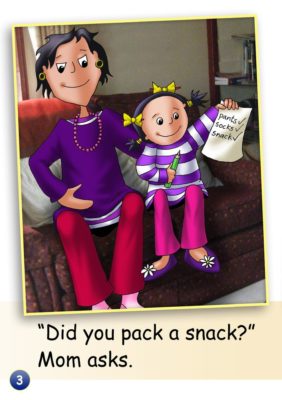Our kids are out for summer, and now all learning rests squarely on the parents’ shoulders. I know that it can be daunting. You want to make sure your child doesn’t lose any of the skills they’ve learned, but you aren’t always sure of the best way to help during the summer. So today, I want to talk about some simple ways you can help your child when reading at home this summer. None of these tips are difficult or ground-breaking, but they can help maintain the knowledge that was learned during the school year.
Embrace the struggle
The first thing we need to do is to embrace the struggle. Trust me when I say this is the hardest tip! If it is slow, awkward, and laborious, that is okay! That slow nature is part of learning to read for most students. When children have to read cat as c-a-t before blending the word, that is a productive struggle we want. I know the urge can be to jump in and give them the word, but we have to let them do the hard work of learning to read. It will not be like this forever, so let’s embrace the discomfort!

Use your judgement
This next tip is much simpler, thankfully. I want to let you know that it is okay to give words that are not in your child’s reach yet. At home, you may not have as many decodable books as the schoolteacher does. While there is plenty your child may be able to read on their own, don’t expect them to labor their way through words that are completely out of their reach. For example, if your child doesn’t yet know r-controlled vowels and the Gentle Cindy rule, don’t expect them to work out the word “Virginia.” Simply tell them the right word, only going into phonics rules if it is a good fit at that moment. Use your judgement. Ask, “Is this a word they can figure out on their own, or is this a word that they don’t have the skills for yet?” If they can figure it out, encourage the struggle. If it is beyond their reach, provide the word and move on!
Look at all the letters
The last tip I want to give today is for when your child reads a word incorrectly. When your child reads a word wrong, prompt them to look at all the letters, say the sounds, and blend. This is the number one strategy I tell my children to use. When my students look at the first letter, then guess a word, I always try to get them to put their eyes back on the word. Children need to be looking at all the letters, not trying to guess the word based on sentence structure or a picture!
So, that is my big three. Let them struggle, give them words that are not yet in their reach, and always prompt them to look at the letters when they read a word incorrectly. Sometimes, the simplest tips are the ones that can have the biggest impact on our children.
***
This is a guest blog by Savannah Campbell, who is a K-5 reading specialist. She has taught her entire career at the school she went to as a child. She holds two master’s degrees in education from the College of William and Mary. Savannah is both Orton-Gillingham and LETRS trained. Her greatest hope in life is to allow all children to live the life they want by helping them to become literate individuals.
More helpful tips for parents can be found here.
Find out more about decodable books for beginner readers.
Find out more about decodable books for catch-up readers.


